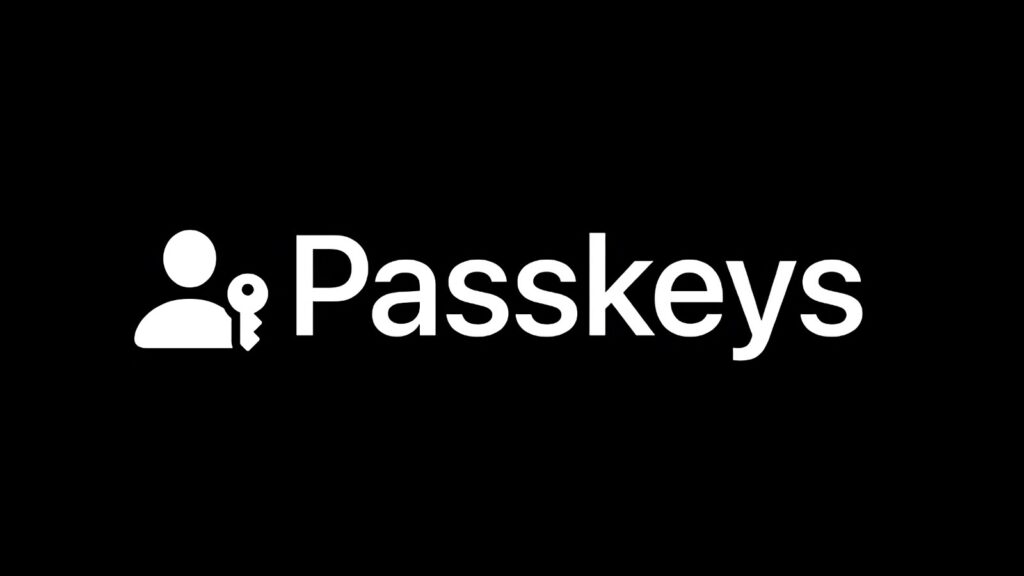In today\’s digital landscape, safeguarding sensitive information is paramount. With cyber threats evolving at an alarming rate, the traditional methods of securing accounts with passwords or passphrases are no longer sufficient. Enter passkeys—a revolutionary approach to authentication that offers enhanced security and convenience. In this blog post, we\’ll delve into the benefits of passkeys and why they represent the future of authentication.
What Are Passkeys?
Before we dive into their benefits, let\’s clarify what passkeys are. Passkeys are cryptographic keys used for authentication purposes. Unlike traditional passwords or passphrases, which typically consist of alphanumeric characters and are prone to being compromised through brute force attacks or phishing schemes, passkeys are generated using advanced encryption algorithms.
Enhanced Security
One of the primary benefits of passkeys is their superior security. Since passkeys are cryptographic keys, they are much harder to crack compared to passwords or passphrases. Traditional authentication methods rely on storing passwords on servers, which can be vulnerable to breaches. In contrast, passkeys are stored locally on the user\’s device and are never transmitted over the network, significantly reducing the risk of interception by malicious actors.
Additionally, passkeys can be combined with other authentication factors, such as biometrics or hardware tokens, further fortifying security. This multi-factor authentication approach adds an extra layer of protection, making it exponentially more difficult for unauthorized individuals to gain access to sensitive accounts.
Convenience and User Experience
Beyond security, passkeys offer unparalleled convenience and a seamless user experience. With traditional passwords or passphrases, users often struggle to remember complex combinations of characters, leading to frequent password resets and frustration. Passkeys, on the other hand, can be generated and managed automatically by password managers or authentication apps, eliminating the need for users to memorize lengthy strings of characters.
Moreover, passkeys can be easily integrated into various devices and platforms, allowing for frictionless authentication across multiple services. Whether logging into a website, accessing a mobile application, or unlocking a smart device, passkeys streamline the authentication process, saving users time and hassle.
Resistance to Phishing Attacks
Phishing attacks, where malicious actors attempt to trick users into revealing their credentials, are a prevalent threat in today\’s digital landscape. Traditional passwords and passphrases are susceptible to phishing attacks, as users may inadvertently disclose their login information to fraudulent websites or emails.
Passkeys mitigate this risk by providing cryptographic proof of identity, making them immune to phishing attacks. Since passkeys are generated locally and never transmitted over the network, even if a user falls victim to a phishing scam, their passkey remains secure, preventing unauthorized access to their accounts.
Future-Proof Authentication
As cyber threats continue to evolve, it\’s essential to adopt authentication methods that can adapt to emerging security challenges. Passkeys represent a future-proof solution to authentication, leveraging cutting-edge encryption technologies to safeguard user data effectively.
By embracing passkeys, organizations can enhance security, improve user experience, and mitigate the risks associated with traditional passwords and passphrases. As the digital landscape continues to evolve, passkeys will undoubtedly play a crucial role in shaping the future of authentication.
Seamless Integration with Password Managers
One of the key advantages of passkeys is their compatibility with password management tools such as 1Password and Keeper. These password managers not only help users generate and store complex passkeys securely but also facilitate their seamless integration across multiple devices and platforms.
Password managers alleviate the burden of managing passkeys manually by securely storing them in an encrypted vault. This means that users can access their passkeys whenever they need them, whether they\’re logging into a website on their laptop or accessing an app on their smartphone.
Moreover, password managers like 1Password and Keeper offer robust synchronization features, allowing users to access their passkeys on multiple devices simultaneously. This means that whether you\’re at home, in the office, or on the go, you can leverage your passkeys to authenticate securely across all your devices with ease.
By leveraging password managers, users can harness the power of passkeys without worrying about the complexities of managing them manually. With features like automatic synchronization and secure storage, password managers enhance the usability and accessibility of passkeys, making them an even more compelling alternative to traditional passwords and passphrases.
In summary, the integration of passkeys with password managers like 1Password and Keeper further enhances their convenience and usability, allowing users to leverage advanced authentication methods seamlessly across all their devices. This combination of security and convenience positions passkeys as a superior solution for modern authentication needs.
In conclusion, passkeys offer a myriad of benefits over traditional passwords and passphrases, including enhanced security, convenience, resistance to phishing attacks, and future-proof authentication. As the need for robust cybersecurity measures intensifies, passkeys stand out as a compelling solution for protecting sensitive information in an increasingly digital world.
